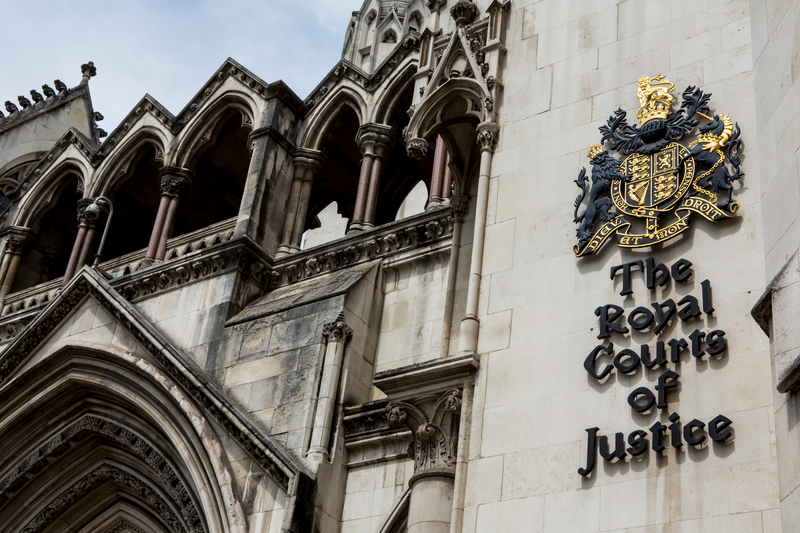On May 12, 2023, the High Court in London refused permission to allow claimants to bring a derivative claim on behalf of Shell plc (Shell) against its directors. The proposed claim concerned Shell’s climate risk strategy. The claimant has now exercised its right under the Civil Procedure Rules to have an oral hearing to reconsider the decision.
The claim was brought by ClientEarth, an environmental organisation which holds a small number of shares in Shell. ClientEarth’s complaint, in substance, was that Shell’s strategy to manage its climate change risk was insufficient, such as in relation to the company’s emissions reduction targets.
The legal basis
The claim was brought as a derivative claim under Part 11 of the Companies Act 2006 (the Act). Section 260(3) of the Act allows shareholders to bring a claim on behalf of a company against its directors in relation to actual or proposed unlawful acts or omissions, such as breaches of their statutory directors’ duties.
There is a two stage process to derivative claims: a court must first grant permission for a claim to continue before a substantive assessment of the merits. This process reflects the fact that derivative claims are only permissible in limited and restricted circumstances, given the foundational company law principle that a company’s directors – not its shareholders – are charged with corporate decision making.
The alleged legal basis for ClientEarth’s claim was that the directors had six specific legal duties in relation to climate change mitigation which were incidental to their general duties under the Companies Act 2006 (specifically ss. 172 and 174: to promote the success of the company, and to exercise reasonable care, skill and diligence). ClientEarth also alleged that the directors were subject to a duty under English common law and Dutch law to ensure that the orders of domestic and foreign courts were obeyed.
ClientEarth contended that there were three categories of alleged breaches of these duties: (1) failure to set an appropriate emissions target; (2) failure to put in place a strategy to establish a reasonable basis to achieve net zero targets; and (3) failure to ensure compliance with an order of a Dutch Court in separate litigation in the Netherlands (Milieudefensie v Royal Dutch Shell: see our previous briefing on this case).
What the claimant asked
ClientEarth sought the following remedies:
- a declaration that Shell’s directors breached their directors’ duties in the way alleged in its claim;
- a mandatory injunction requiring the directors to adopt and implement a climate risk strategy in accordance with the interpretation of their duties alleged in the claim;
- a mandatory injunction requiring compliance (on the basis of alleged non-compliance) with the Dutch Court’s order in Milieudefensie v Royal Dutch Shell.
The court decision
The Court concluded that ClientEarth had not put forward a prima facie case for permission to continue its derivative claim and dismissed its claim subject to ClientEarth’s right to apply for a separate oral hearing:
- Alleged incidental climate-related directors duties: the Court found that ClientEarth’s approach was tantamount to imposing absolute duties on directors, which was inconsistent with their general duties under s.172 of the Act to have regard to many competing considerations when considering how best to promote the success of the company for the benefit of its shareholders as a whole. The Court also found that while a director is obliged to take reasonable steps to ensure that an order of an English court is obeyed, a director does not owe any specific duty to the company itself in relation to orders of English or other courts.
- Breach of duty: the Court found that the alleged breaches did not establish any prima facie case on the evidence. It held that ClientEarth’s allegations relied heavily on impermissible opinion evidence, that: (a) it had not established that there was any universally accepted methodology as to how Shell might achieve its Energy Transition Strategy; and (b) it had not shown that the directors’ decision making was one that no reasonable director would adopt (particularly given the complexity of Shell’s business). Indeed, the court commented that the directors’ weighing up of complex competing considerations constituted “classic management decision[s] with which the court is ill-equipped to interfere”.
- Relief sought: the Court held that in any event it could not grant the mandatory injunctions sought by ClientEarth because they would require continuous supervision by the court (a factor against granting an injunction under English law).
- Discretionary considerations: the Court also noted that ClientEarth only held 27 shares in Shell. Given its status as an environmental policy organisation the Court decided that ClientEarth had not sufficiently countered the inference that its application was brought for collateral reasons, ie its own “policy agenda”, rather than “a balanced consideration as to how best to enforce the multifarious factors which the Directors are bound to take into account when assessing what is in the best interests of Shell”.
Take aways
In this decision, the Court did not accept arguments that company directors owe specific, climate-related, legal duties to the company arising from their statutory duties. In so doing, and in keeping with relevant case law, the Court demonstrated a reluctance to interfere in strategic corporate decision making, particularly in the context of a global corporate group with highly complex operations where directors are required to weigh up many competing considerations.
Nonetheless, the case is demonstrative of a global trend of ESG-related claims, as claimants continue to examine how existing legal frameworks in jurisdictions across the globe may be used to determine liability for companies and directors alike, to ultimately influence corporate strategy. This trend is unlikely to abate given the continued prominence of ESG in legal and political discourse globally. Indeed, ClientEarth has now exercised its right under the Civil Procedure Rules to have an oral hearing to reconsider the decision (and there could be appeals). We will provide a further update following the outcome of this hearing.
The full judgment is available online.
Stuart Neely, partner, is a disputes lawyer based in London, Norton Rose Fulbright. Holly Stebbing, partner, is a commercial litigation and dispute resolution lawyer based in London. Andrew Judkins, senior associate, is a dispute resolution lawyer based in London.
















